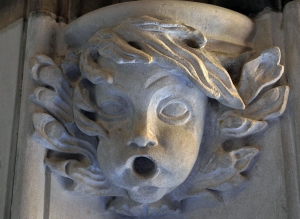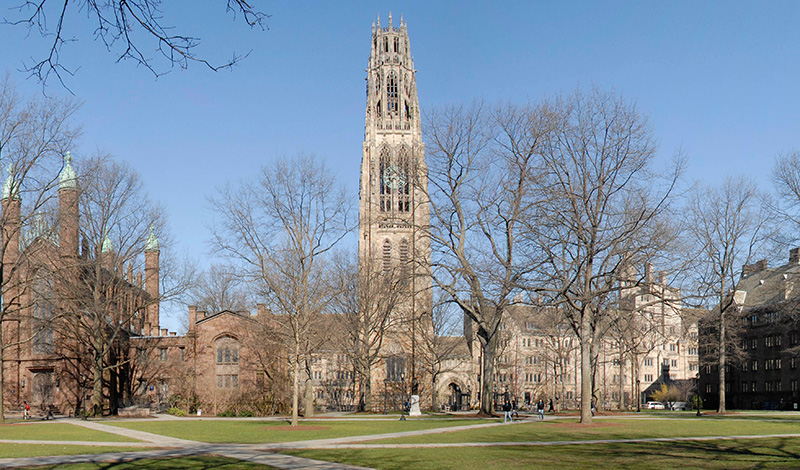What Is This Place?

My contact with a broad swath of Yale ‘69 preparatory to our 50th revealed widespread unease with what Yale now appears to “be.” This disaffection was repeatedly invoked as the source of decisions not to attend the Reunion – prompting our Reunion Committee to assert that the Reunion would be about renewing connections between classmates, not an expression of loyalty to our alma mater.
This estrangement has little to do with how much we loved, or hated, Yale more than 50 years ago: most of us ascribe any disappointment with our undergraduate experience more to our own failures than to Yale’s. The institution is remembered as benign, even benevolent, embodying values consonant with those of its mostly-centrist undergraduates. The sense that Yale occupied the same moral universe as its students enabled it to remain functional even as turmoil over Vietnam, civil rights, and social justice convulsed other campuses and the country at large.
Now, many of us see Yale as having abandoned the values ascribed to it in the ‘60s – especially the primacy of free expression and open inquiry. Instead, we see spineless submission to ill-considered, often offensive, student demands. The Christakis affair became the signature incident in Yale’s fall from grace. Comparable reports from esteemed peers suggest that Yale’s retreat is not an isolated phenomenon. Yale and other historic bastions of liberal values may still provide their students a superb education — but what, we ask, do they stand for now?
This conspicuous gnashing of teeth may rest on a dubious premise: that Yale now stands, or ever did, for any enduring precepts. Lux et Veritas is a catchy motto, but does not illuminate any particular Truth. I know of no Credo of perpetual values embraced by Yale. All sorts of values can be extracted from the aggregate syllabus of a Yale education . . . but Yale does not say which of them it endorses or rejects. A Yale education does not include an unwavering moral compass. If none was enshrined when Yale was established to train clerics in Colonial America, at what moment in its history did such values appear and attach? If values are neither self-evident nor consistent over time, can they ever be considered “core” or “fundamental”?
Based on its observed behavior over the last fifty or so years, it is entirely plausible that Yale wants to be known for its “successful” graduates rather than its adherence to any core values. It wants applicant pools well stocked with the best, brightest, and most promising candidates who can carry the Yale brand. Yale remains at the apogee of American academia – and wields cultural authority – by aligning itself with the values and beliefs of the future leaders on which it hopes to place its brand. Even “timeless” values are re-defined over time: an institution seeking to survive across generations cannot afford to be so fixedly attached to an incumbent set of values that it finds itself out of step with later culture. How would Yale admissions fare today if Yale condoned slavery, deemed women undeserving of higher education, or considered its task to provide a final polish to the sons of a hereditary Establishment? Yale was that place in prior times, but modified policies – and the value assumptions behind them – in cadence with the society around it. Why should we expect the values Yale espoused in the 1960s to be any more enduring than those of prior centuries?
Unyielding values can encumber and threaten institutional immortality. Our tax policies enable institutions like Yale to accumulate vast resources, in return for which they must abjure direct involvement in politics. Thus constrained, Yale’s most potent strategy for retaining independence and influence over time is to create bonds of loyalty and shared identity with individuals who do, or will, wield social, economic, and political power. Providing an undergraduate education seems to be an especially effective and long-lived form of branding: institutional survival and influence may best be accomplished by attracting a constant stream of high-likelihood future leaders, covering as broad an array of future social roles as possible, while they are most susceptible to identification with the institution. Ergo, Yale College.
Apart from their utility in recruiting students (and faculty), attempts to administer a university according to non-generic “values” seem destined to eventual conflict. It is safer to claim attachment only to virtues – Truth, Honor, Equality, Justice, Wisdom – that can be (re)defined and particularized to satisfy the preferences of the current times. Continuing adherence to more concrete “values” as applied to specific issues does not appear to be an essential element of the “branding” strategy that, arguably, Yale and its peer institutions practice.
Can this hypothesis account for the disaffection my classmates express about Yale? I think that we want Yale to stand for something more than pragmatism and expedience: Yale should adhere to the values that we feel are fundamental to our society. But I cannot articulate why Yale should express greater allegiance to the values held by its Class of 1969 than to those of the Class of 1750, or 1825, or 1935, or 2020, etc. Whether the issue is whose name may grace a campus building, or what constitutes acceptable discourse, or who (or what) Yale exists to serve, there is little basis for expecting Yale to exhibit enduring or consistent positions — however much we personally cherish them. Yale may be adroit at casting its changes in direction as reasoned continuity . . . but for alums whose Yale experience is four or more decades distant from contemporary issues and attitudes, the worm of doubt remains.


Doug, this is truly excellent. I’m a little squeamish about your repeated use of “branding” as a primary activity of the college, but your repeated return to the challenges of a system of values does compensate. Your discussion of the mutability of “values fundamental to our society” and your mild deprecation of our generation’s fundamental values seem to me not to give sufficient credit to the deep morality that characterized our personal (and group) development as undergraduates. Am I sounding like an old fart? Well, just as I maintain that our music was demonstrably better than most of what’s heard by Yalies now, I almost insist that our values arose from serious consideration of moral questions and that there’s not enough of that on campus now. Relativism can be a useful mode of inquiry, but it can also overwhelm the time-tested principles that we inherit from centuries of civilization. Aristotle is not irrelevant.